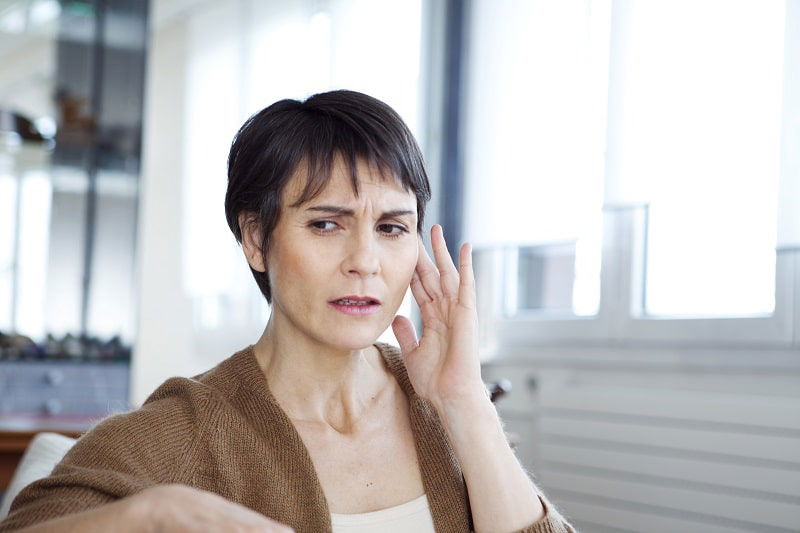The inner ear is a sensitive little thing, susceptible internally to infections, inflammation, and viruses. In addition to these, it’s also at risk of external sources such as explosions, dangerously loud music, and blasts of noise like emergency sirens.
Even with proper protection, issues can crop up such as tinnitus or Meniere’s Disease, which is characterized by sensorineural hearing loss. At this time, there is no known cure for either condition. Tinnitus, often described as a ringing in the ears which no one else can hear, can last as little as a few hours or it could be permanent.
Meniere’s Disease, which affects the inner ear, can cause vertigo or a sensation of uncontrolled spinning. It can also give rise to trouble hearing as well as symptoms of tinnitus. It often affects only one ear. According to the National Institute on Deafness and Other Communication Disorders (NIDCD), approximately 615,000 U.S. residents suffer from Meniere’s. An average of 45,500 people are diagnosed with the disease each year and it’s most often reported by people in their 40s and 50s.
Though considered a chronic disease, Meniere’s often goes into remission a few years after the patient is diagnosed with the disease. Though there is no known cause at this time, scientists surmise that changes in the fluid located within the tubes of the inner ear could be the reason behind this condition. Other suggestions for causes are allergies, autoimmune disease, and genetics.
Symptoms of Meniere’s Disease are often reported as episodic or “attacks” that include symptoms of:
- Feelings that the ear is plugged or an aural fullness
- Headaches
- Loss of balance
- Loss of hearing in the affected ear
- Nausea or vomiting (caused by vertigo)
- Sweating (caused by vertigo)
- Tinnitus in the affected ear
- Vertigo that lasts anywhere from a few minutes up to 24 hours
Fortunately, most people report that they don’t have any symptoms between these episodes, which can mean that if they do experience any, they could be caused by other issues within the ear. Of these symptoms, unfortunately, the person can expect to suffer from, at minimum, two or three of the following at the same time:
- Aural fullness
- Hearing loss
- Tinnitus
- Vertigo
Research has turned the corner in a positive way for sufferers of Meniere’s and tinnitus. Sound Pharmaceuticals has been granted the opportunity to receive Fast Track Designation (FTD) for it’s product SPI-1005. Sound Pharmaceuticals is investigating this experimental drug as a treatment for multiple neurotologic symptoms which include two types of ototoxicity (dizziness, hearing loss, tinnitus, or vertigo) due to aminoglycoside antibiotics and platinum-based chemotherapy, as well as noise-induced hearing loss.
Previous studies noted impressive concept validation in attempts to prevent and control Meniere’s Disease and noise-induced hearing loss.
Sound Pharmaceuticals, which is based in Seattle, has completed two multi-center, randomized, placebo-controlled studies that prove out that using SPI-1005 in 21- or 28-day increments has improved symptoms of tinnitus and even restored patients sensorineural hearing loss caused by Meniere’s.
When administered orally, SPI-1005 has the capacity to tackle this medical need which, up to this point has been unfulfilled. With the Fast Track Designation, the process for development and testing of SPI-1005 is being accelerated. This includes increased meetings with the Federal Drug Administration, rolling reviews, which means that Sound Pharmaceuticals can submit each individual completed sections of its Biologic License Application or New Drug Application for review by the FDA instead of waiting for the completion of the entire application.
During Phase 1b and Phase 2b trials, improvements that were found relative to clinical studies were specified by the use of two types of hearing sensitivity and specificity tests which were conducted by an audiologist. Pure-tone audiometry (PTA) and words-in-noise test (WINT), as well as results of the Tinnitus Function Index (TFI) and Vertigo Symptoms Scale (VSS), were assessed.
Any improvements in these scores from the original baseline were then compared between the groups receiving SPI-1005 and the groups receiving a placebo. The Phase 2b results reaffirmed the findings from the initial testing in Phase 1b which proved that SPI-1005 could in fact, lower the perceived volume of tinnitus by levels that are clinically relevant.
These advancements towards auditory function are a positive approach to the treatment of age-related hearing loss, idiopathic hearing loss, and noise-induced hearing loss in instances where sensorineural hearing loss and tinnitus are present.
SPI-1005 contains Ebselen, which is a new chemical entity for FDA classification. This small molecule, an organic compound not only mimics but instigates glutathione peroxidase (GPx) activity. Representing a novel class of anti-inflammatory, the activity of GPx is crucial to several types of cells as well as tissues within the brain, inner ear, kidney, lung, and retina. This much-needed molecule is often found to be reduced by exposure to environmental pollutants. Studies show that the loss of this activity results in sensorineural hearing loss in a variety of animal studies.
“This is a major regulatory milestone for our most advanced clinical program to date,” said Jonathan Kil, MD, Co-Founder and CEO.




